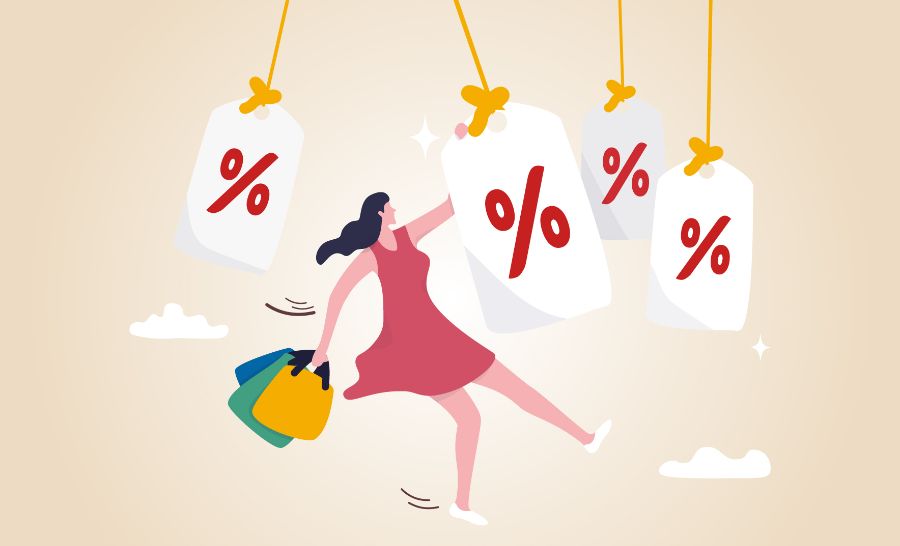Gregory Heym is Chief Economist at Brown Harris Stevens. His weekly series, The Line, covers new developments to the economy, including trends and forecasts. Read on for the latest report and subscribe here to receive The Line in your inbox.
Today, we present a trifecta of better-than-expected news.
Retail Sales Were Higher than Expected Last Month, and You Know What that Means
Yep, add another data point to the list of higher-than-expected reports for December. First hiring, then prices, and now retail sales. Guess it shouldn’t be too surprising, since more people working and higher prices are a recipe for increased spending.
Here’s what you need to know about retail sales in December:
-
Sales were up 0.6% last month, higher than the 0.4% rate economists were expecting.
-
Retail sales in December were 5.6% higher than a year ago, 3.3% of which can be attributed to higher prices. Retail sales data is not adjusted for inflation, so rising prices can increase sales even if consumers buy the same or less goods and services.
-
The biggest increase in sales last month was at non-store retailers—aka online shopping—and clothing and accessory stores, which each saw a 1.5% increase.
-
Falling gas prices brought sales at gas stations down 1.3% in December.
The U.S. consumer continues to find ways to spend, even as inflation remains above the Fed’s target rate. This is not the best news for mortgage rates, as this report—combined with the latest on prices and jobs—will keep the Fed from cutting rates anytime soon. It’s also not the worst news, as the economy continues to do better than most economists thought.
Next week, we’ll get the first reading on economic growth in 4Q23. Right now, it’s looking like that number will be in around the 2%-2.5% range, hardly what you’d expect to see if the economy headed into recession.
Jobless Claims Fall to Their Lowest Level Since September 2022
Just when you thought the news couldn’t get any better, initial claims for unemployment fell to 187,000 last week. This figure was down 16,000 from the prior week and was the lowest reading since the week ending September 24, 2022. That may not sound too impressive, but the last time claims were lower than September 24, 2022, was 1969—a year so special that the Jets and Mets both won championships.
The Labor Department publishes unemployment claims back to 1967, and during that time they have averaged 365,619 per week, which is almost double what they are now.
Mortgage Rates Fall to an Eight-Month Low
Here’s the dessert for our meal of better-than-expected news items. Rates for 30-year conforming mortgages fell to 6.60% this week, their lowest level since May 2023. Since The Line is trying to cut back on desserts, we will leave it at that.


